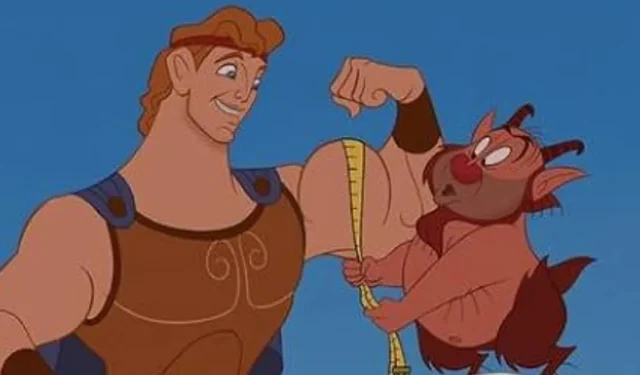
Exploring the Modern Humor and Cultural References in Disney’s Hercules
Disney’s animated masterpiece, Hercules, is celebrated not only for its vibrant animation and musical charm but also for its comedic take on Greek mythology. The tale follows Hercules, the son of Zeus, who grapples with the challenge of proving himself as a hero deserving of divinity. As part of Disney’s Renaissance era, the film showcases a blend of traditional storytelling, eye-catching visuals, and captivating Broadway-inspired songs, composed by the renowned Alan Menken, known for his work in earlier Disney classics such as The Little Mermaid and Beauty and the Beast.
Set against a backdrop reminiscent of ancient Greece, Hercules is infused with modern humor and cultural nods that keep the narrative fun and engaging. The film opens with the Muses, styled like a gospel choir, immediately setting a humorous and contemporary tone with lines like “lighten up, dude,” indicating viewers are in for a modern twist rather than a somber tragedy. This blend of current references and historical context invites audiences to rewatch the film, uncovering pop culture Easter eggs that enhance its playful atmosphere.
10
Hercules’ Training Montage References The Karate Kid
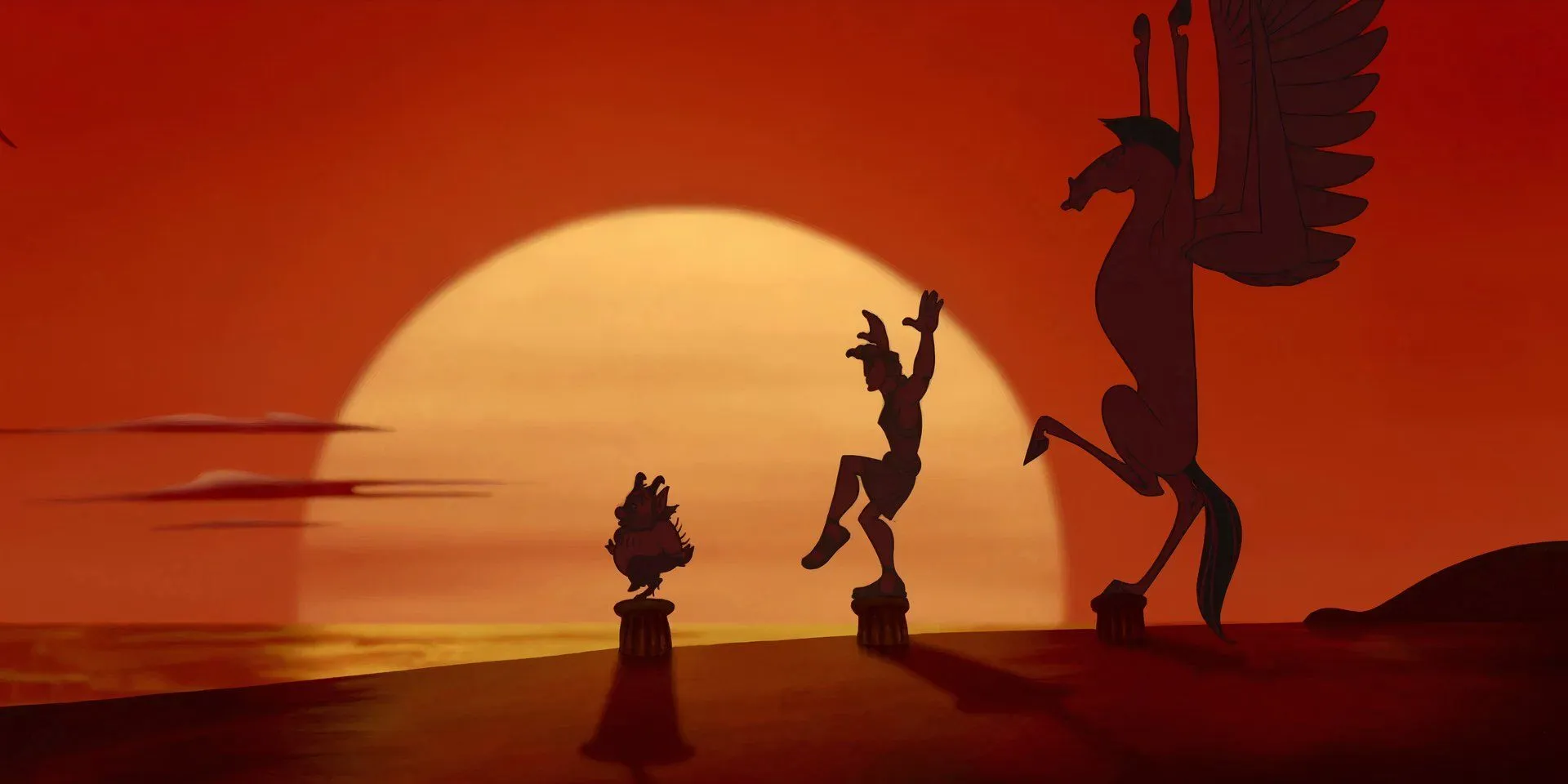
In a pivotal training moment, Hercules, voiced by Tate Donovan, learns that to become a “true hero,” he must train under Philoctetes, affectionately known as Phil (Danny DeVito). This leads to a montage set to the energetic song “One Last Shot,” featuring Phil’s enthusiastic if reluctant coaching. One humorous homage within this montage is to the iconic crane kick from The Karate Kid, reinforcing Hercules as an underdog on a transformative journey, much like Daniel LaRusso.
9
Phil Describes Thebes As the Grecian New York City
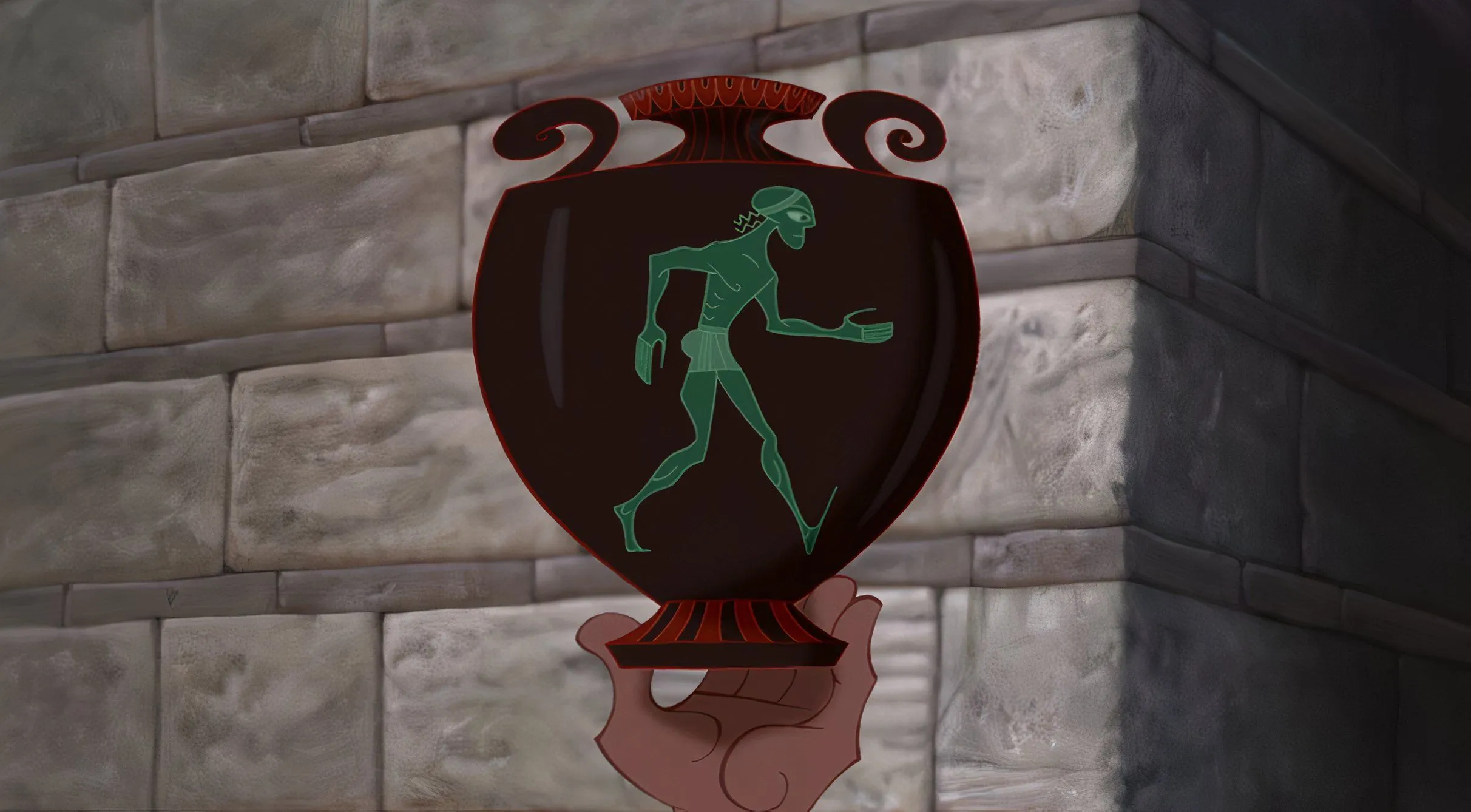
When Hercules is ready to take his skills to the test, Phil leads him to Thebes, humorously referring to it as “The Big Olive,” a playful nod to New York City’s nickname, “The Big Apple.” In a striking visual gag, the flow of traffic is orchestrated by a decorative vase depicting a man walking and a hand signaling to stop, reminiscent of a modern stoplight. These comedic modern allusions provide context to the bustling nature of Thebes, contrasting sharply with Hercules’ humble beginnings.
8
“Somebody Call IX-I-I!”
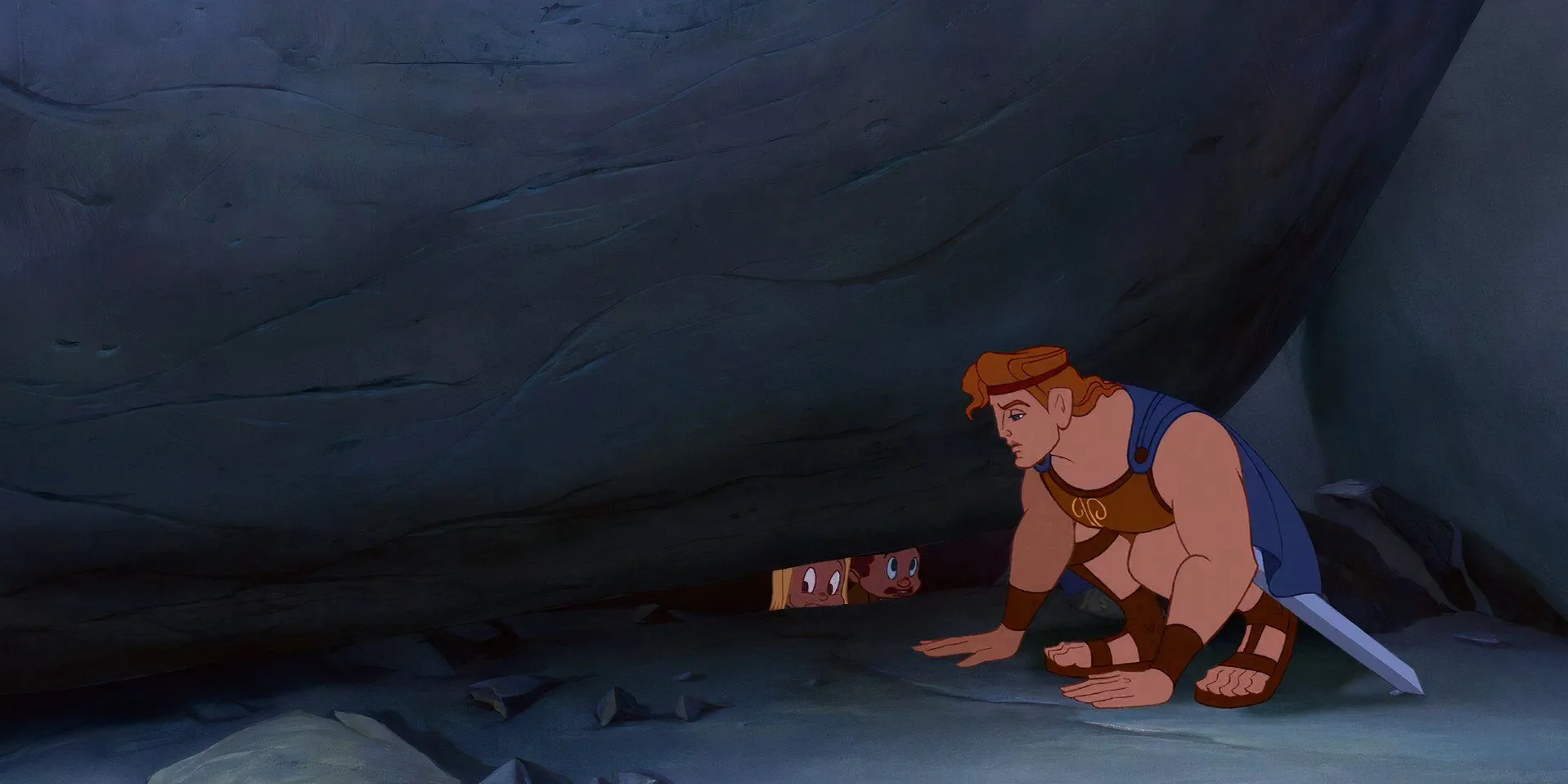
In another clever comedic moment, Hades (James Woods) attempts to trap Hercules by luring him with the guise of children needing help, proclaiming, “Somebody call IX-I-I!” This joke merges ancient Roman culture with modern emergency services, as IX-I-I translates to 9-1-1 in Roman numerals. Such anachronistic humor perfectly encapsulates the film’s playful vibe.
7
Hades Treats Competition Like Modern Sporting Events
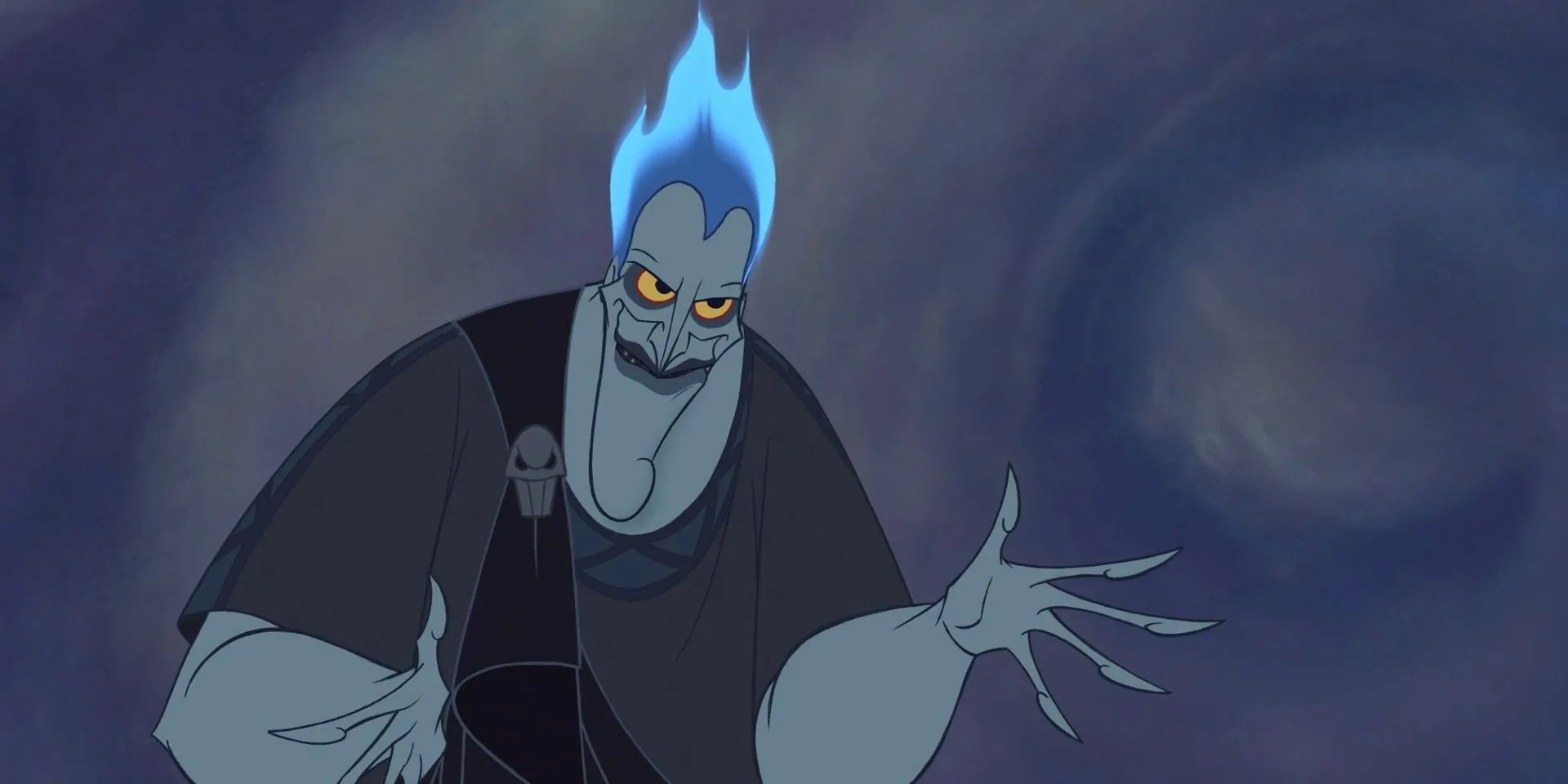
As Hercules battles various mythical creatures, Hades adopts a broadcaster’s flair, using contemporary sports terminology to comment on the action. Phrases like “Let’s get ready to rumble!” and “It’s only halftime” inject excitement into the battle scenes, providing vital comic relief during intense moments. This character portrayal, while maintaining a sense of menace, ensures that the narrative remains suitable for younger audiences.
6
Pegasus’ Draft Causes a Constellation to Have a Marilyn Monroe Moment
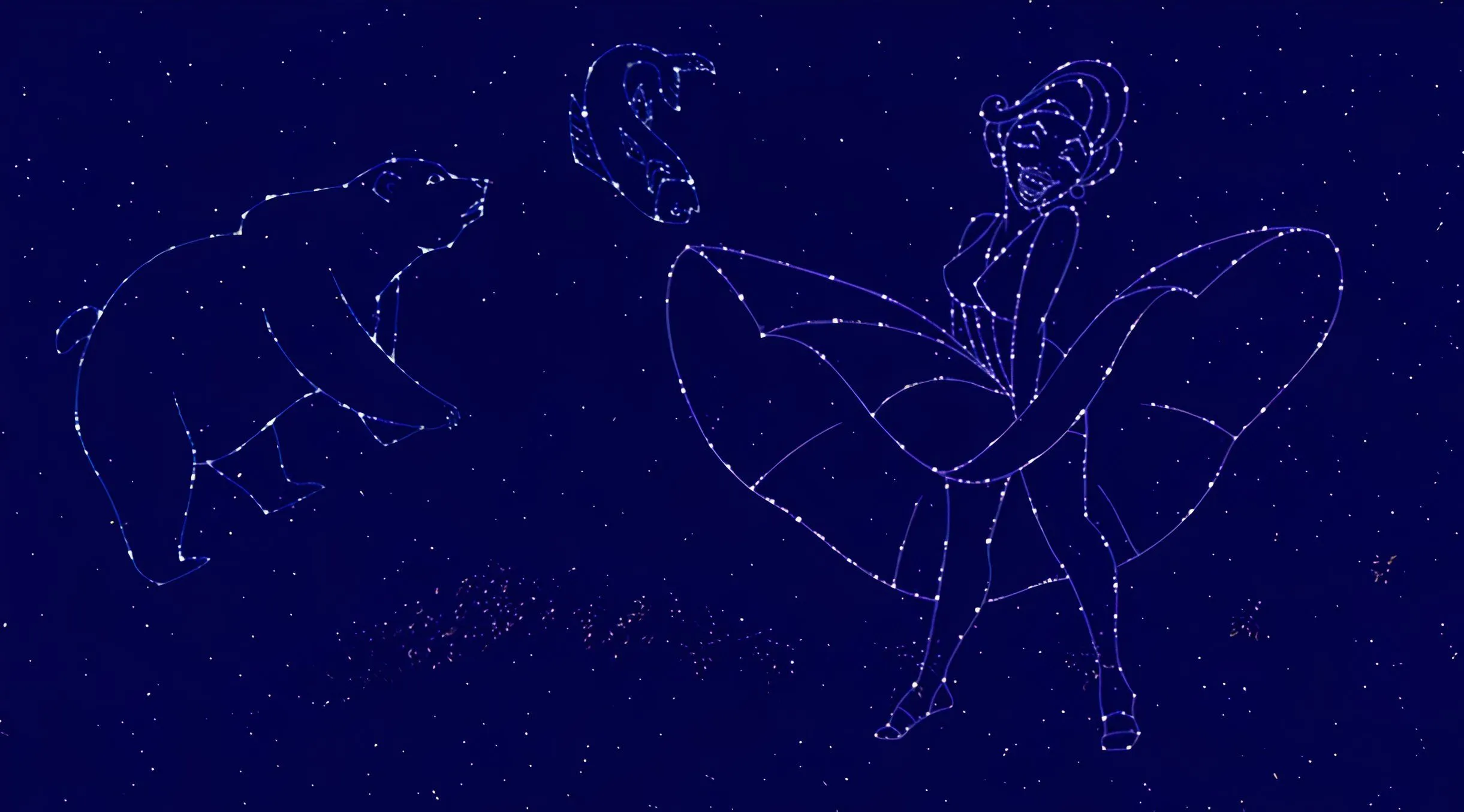
During one enchanting sequence, Hercules and his winged companion Pegasus fly so high that they interact with constellations. A whimsical moment occurs when the wind from Pegasus’s wings lifts the dress of a woman-shaped constellation, echoing Marilyn Monroe’s famed scene from The Seven Year Itch. This playful reference underscores Hercules’ rise to fame and hints at his impending struggles with the celebrity status he is quickly accumulating.
5
Hercules’ “Zero to Hero” Montage References Grauman’s Chinese Theatre
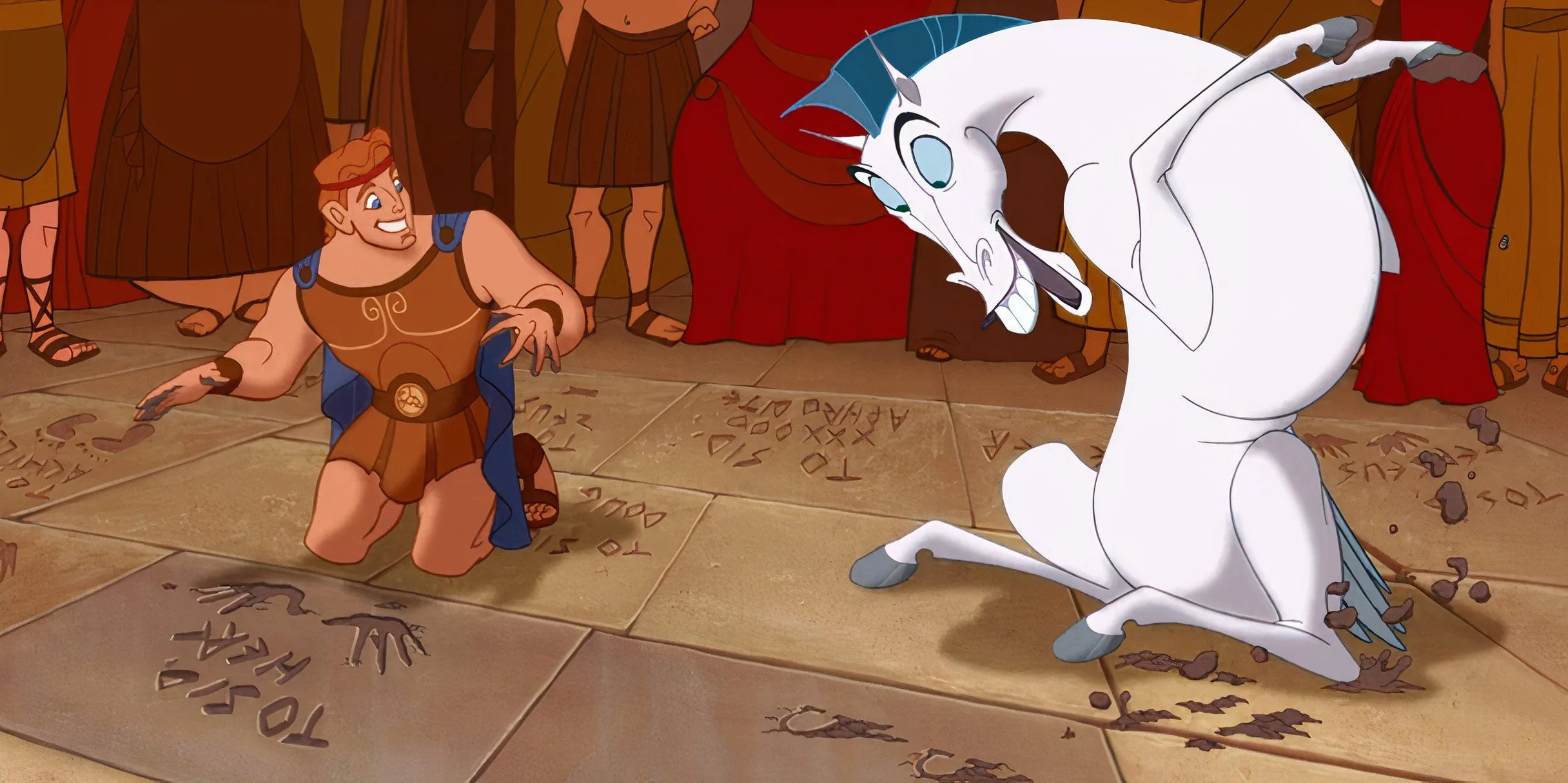
In the catchy musical number “Zero to Hero,” Hercules achieves remarkable fame, including a lighthearted reference to Grauman’s Chinese Theatre, where actors often leave handprints in cement. The film depicts Hercules and Pegasus leaving their marks while Hercules humorously dedicates his prints to “Sid,” a nod to the theatre’s founder. This cleverly ties Hercules’ legacy to Hollywood traditions, enhancing the film’s commentary on celebrity culture.
4
Hercules Treats Its Hero Like a Modern Celebrity
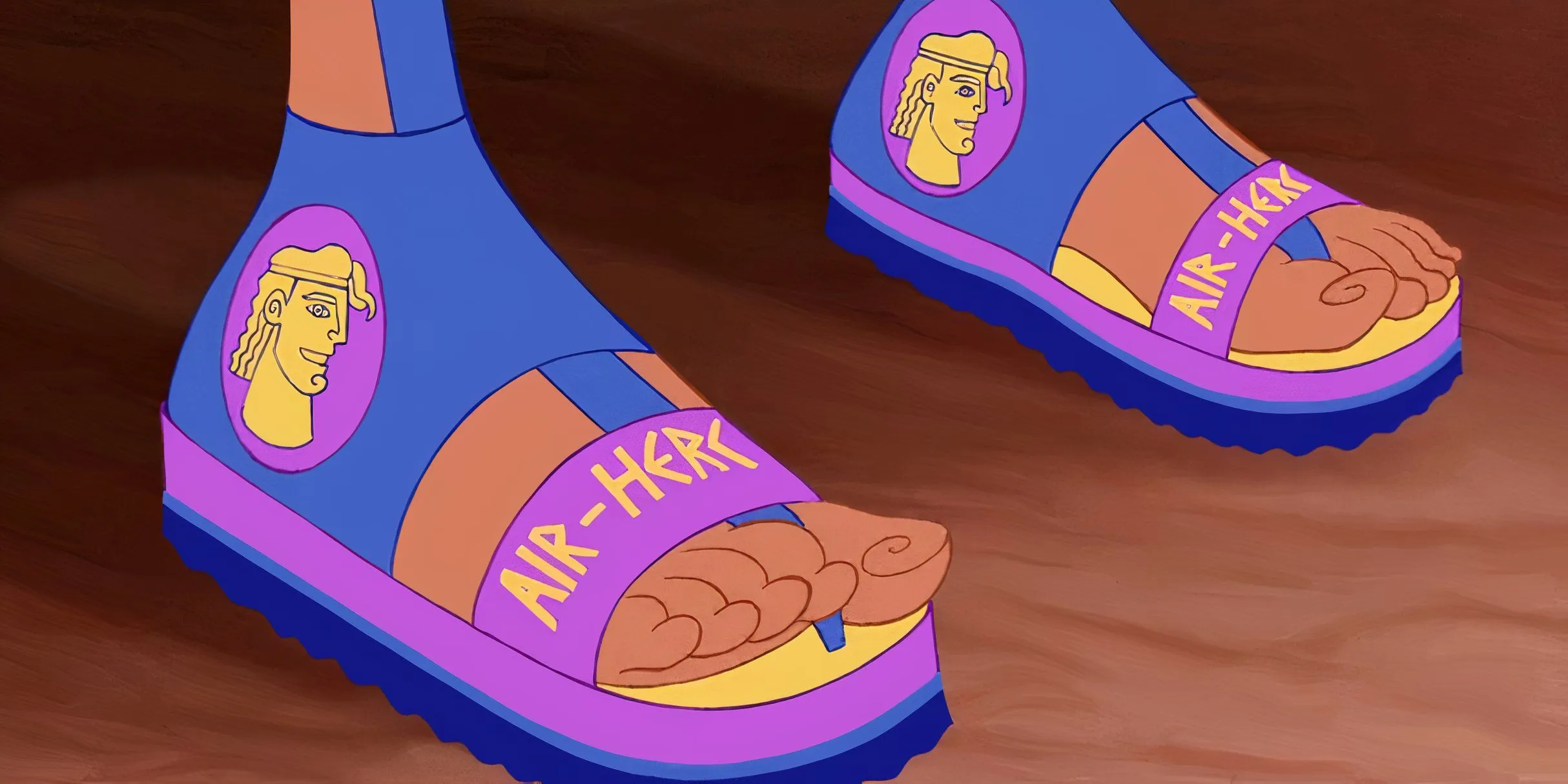
The narrative portrays Hercules as a modern celebrity through his swift rise to fame, featuring an array of merchandise such as “Air-Hercs,”a playful nod to Air Jordans. As he battles various foes, Hercules becomes a commodified figure, complete with endorsements for “Grecian Express” credit cards and “Herculade.”The Muses provide a cheeky commentary on his financial success, highlighting a critique of over-the-top celebrity merchandising.
3
A Tour Guide Mentions A Gift Shop at Hercules’ Themed Estate
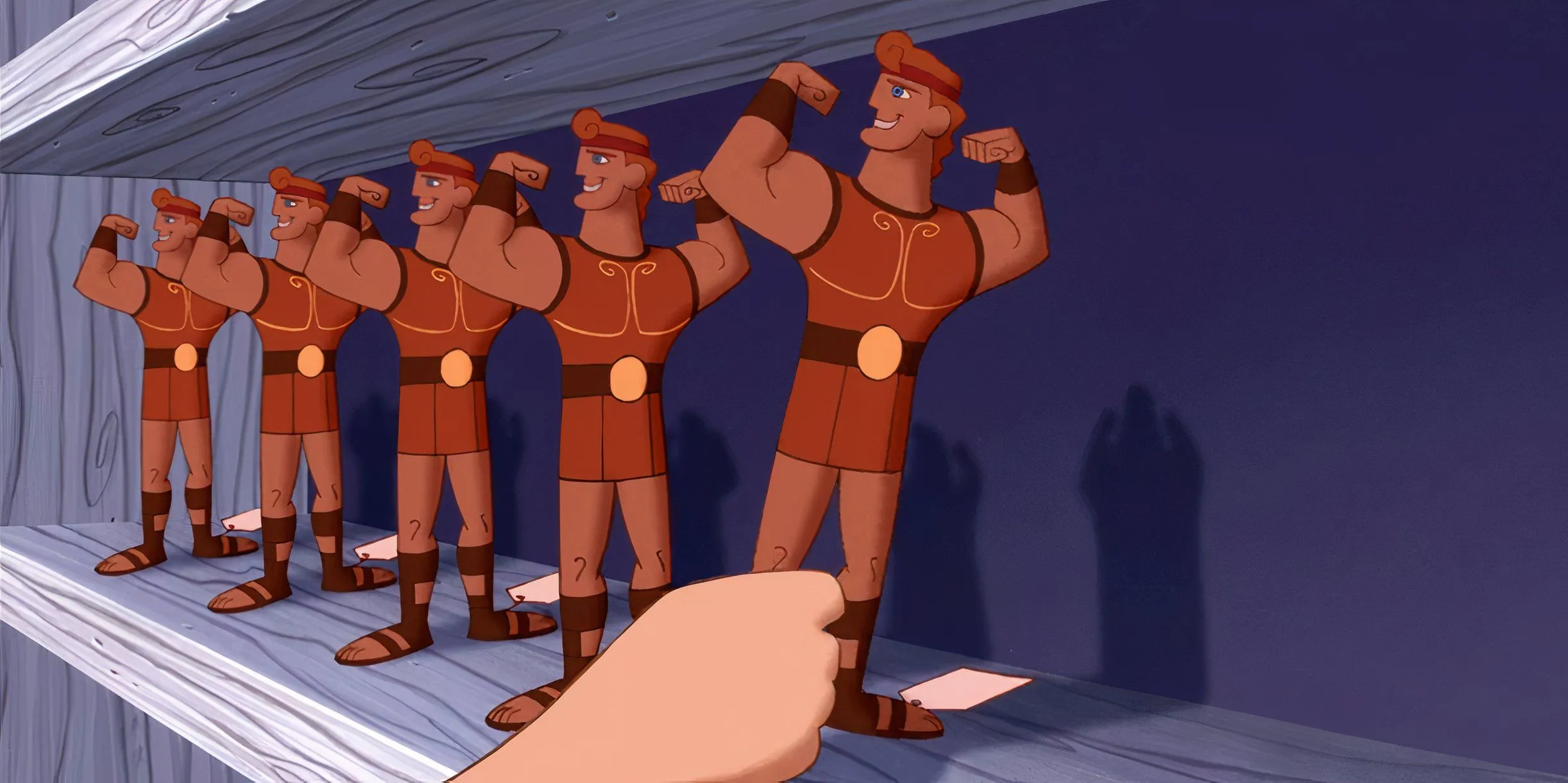
After achieving stardom, Hercules’ residence transforms into a tourist attraction, complete with a “Pecs and Flex Gift Shop.” This clever allusion to the 1980s workout craze integrates contemporary themes into an ancient setting, allowing viewers to grasp the exaggerated nature of Hercules’ fame in relatable terms.
2
Hercules’ Script Antiquates Modern Phrases
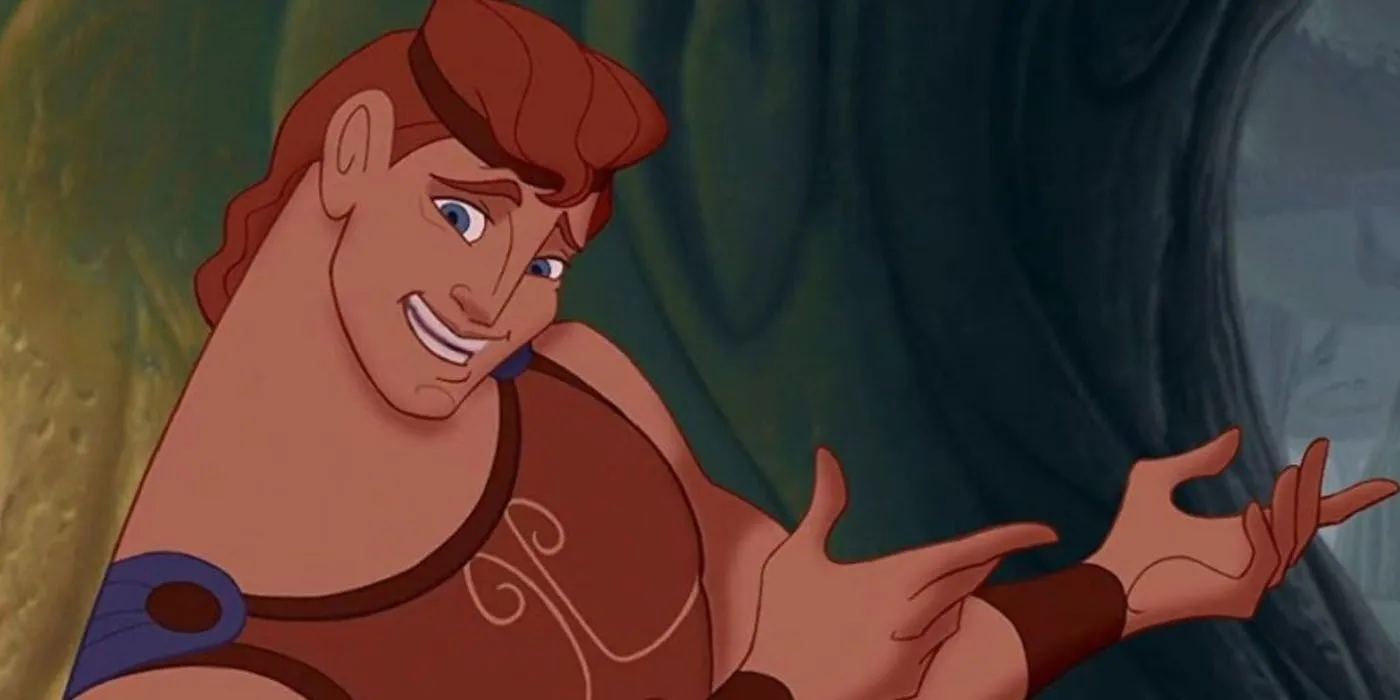
The screenplay features clever adaptations of modern phrases, such as transforming “oh my God”into “oh my Gods” and the phrase “the best thing since sliced bread” into “the best thing since they put a pocket in pita.” These linguistic quirks enrich the movie’s unique flavor and create an immersive experience for viewers, showcasing Disney’s playful take on mythology.
1
Hercules Sneaks In a Few Disney Easter Eggs
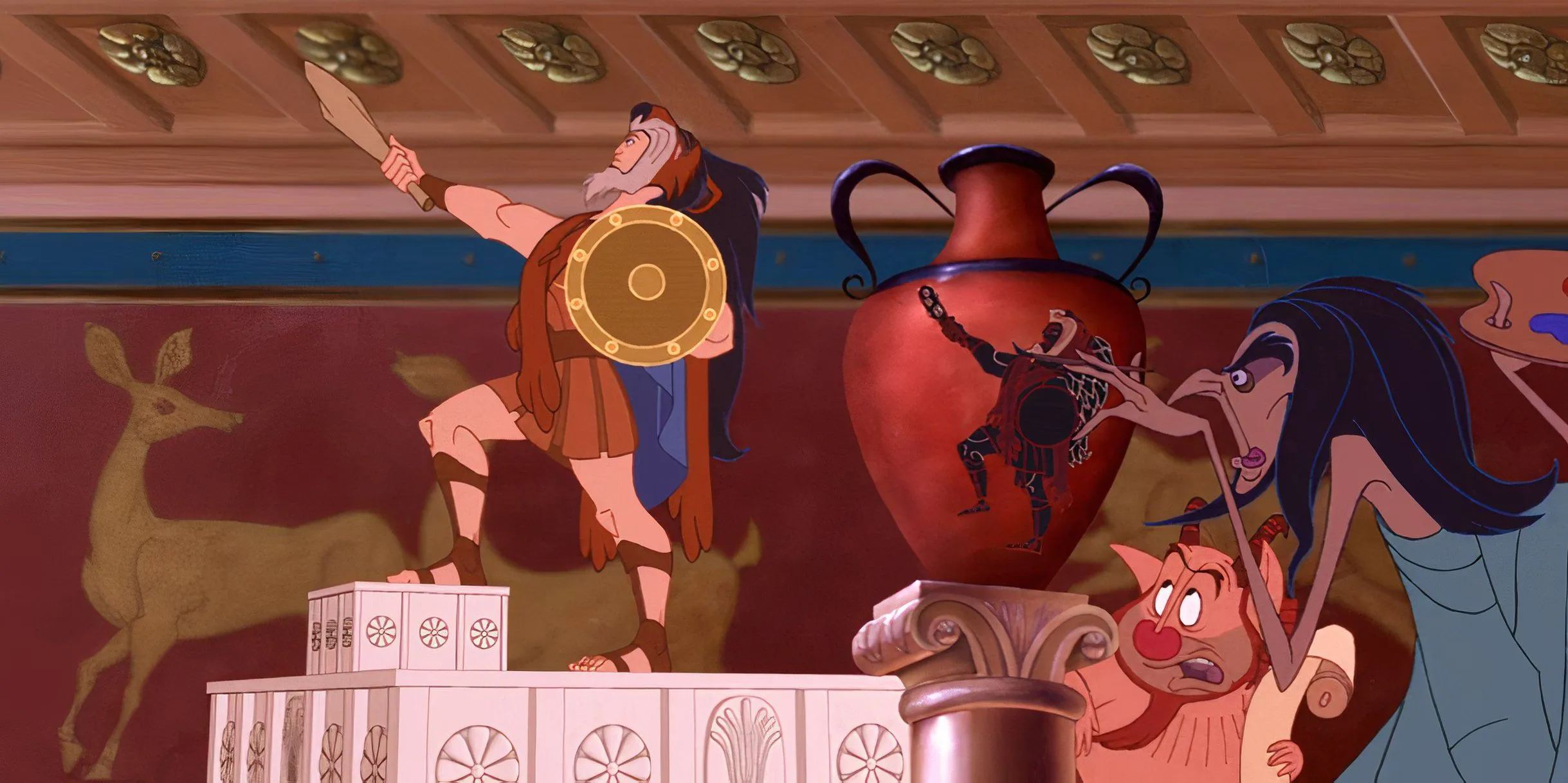
Fans of Disney will appreciate the Easter eggs nestled within Hercules, such as the Muses mimicking the singing busts from the Haunted Mansion ride or Hercules draped in Scar’s pelt during a portrait scene. These witty references add layers of humor while maintaining the film’s connection to the broader Disney universe, cleverly examining the relationship between mythology and modern storytelling.
In conclusion, Disney’s Hercules is a rich tapestry of humor, cultural references, and clever storytelling techniques that invite audiences back time and again. Its lasting appeal is rooted in the ability to blend the ancient world with contemporary elements, making the story of Zeus’s son both relatable and timeless.




Leave a Reply